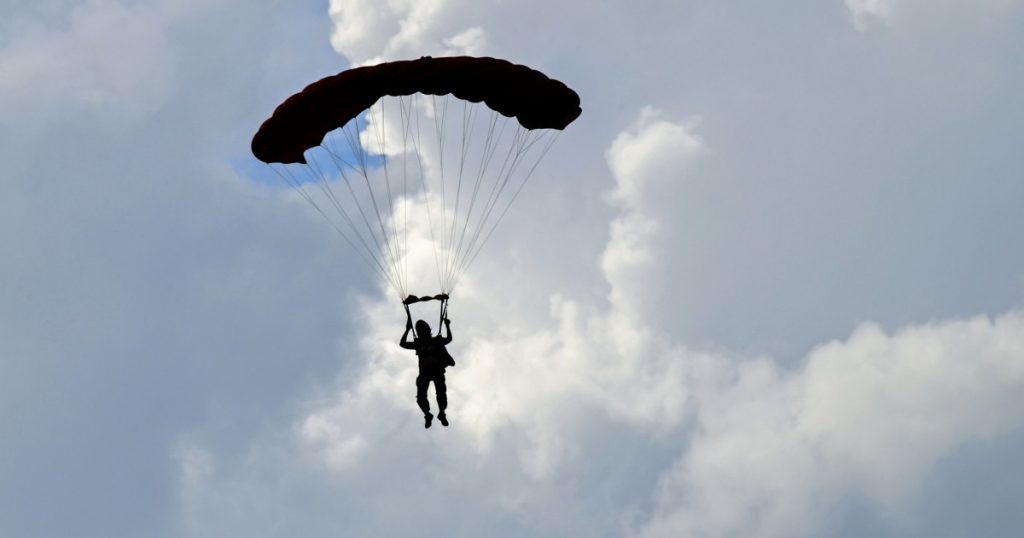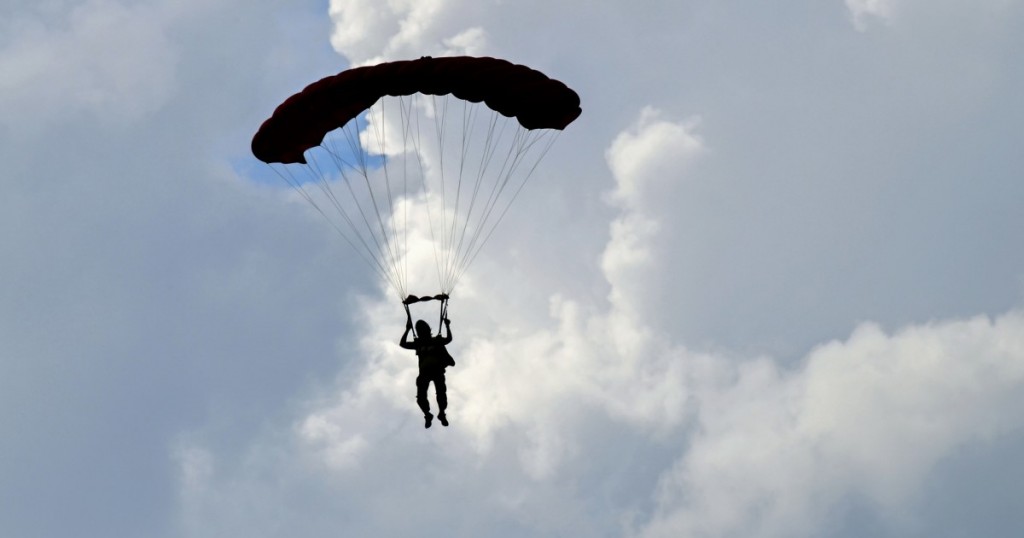Earlier this week, the FBI announced that it was finally closing its file on the mysterious 1971 plane hijacking case in which a man identified only as “D.B. Cooper” demanded $200,000 in cash (and some parachutes), jumped out of the plane over the Pacific Northwest, and disappeared without a trace. This means Cooper’s identity may never be discovered. But who could he have been?
A military paratrooper
For a man to jump out of a plane at 10,000 feet—into high winds, at night, wearing regular clothes—FBI investigators at first turned their attention to men who had done that kind of thing before. As skydiving wasn’t yet a recreational thrill sport, they figured someone in the military. This notion was ultimately rejected because the jumper did make some rookie mistakes—like not noticing that his reserve chute had been sewn shut before he jumped, for example.
Robert Rackstraw
In July 2016, the History Channel aired a special called D.B. Cooper: Case Closed?, which followed retired FBI agents who opened a new investigation into Cooper’s identity. The consensus: a 72-year-old California man named Robert Rackstraw. He served in the Vietnam War as an army helicopter pilot (and trained as a paratrooper). Rackstraw has never before been associated with the hijacking and had never turned up in 45 years of FBI research. Rackstraw denies that he’s Cooper—and in the special, a flight attendant from the fateful flight claims he doesn’t look anything like the hijacker.
Kenneth Christiansen
In 2007, reporter Geoffrey Gray published Skyjack: The Hunt for D.B. Cooper. He’d actually been given access to the FBI’s files on Cooper, and his investigation centered on Kenneth Christiansen. Gray had been contacted by a private detective, hired by a man named Lyle Christiansen who was convinced that his deceased brother Kenneth was Cooper. Kenneth Christiansen was a flight purser for Northwest Orient Airlines—the carrier for Cooper’s fateful flight. He’d also bought a house a few weeks after the hijacking. And on his deathbed, Lyle says that Kenneth told him, “There is something you should know, but I cannot tell you!” Lyle thinks he knows what Kenneth was going to say.









